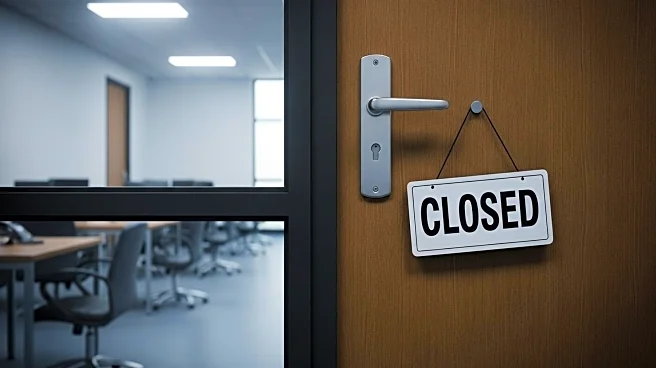What is the story about?
What's Happening?
The U.S. government shutdown, which began on Wednesday, has led to the suspension of work for hundreds of thousands of federal employees, significantly disrupting various federal programs. Agencies such as the Environmental Protection Agency and the Department of Education have furloughed a large percentage of their workforce. Essential services, including federal law enforcement and air traffic control, continue to operate, but employees are working without pay. The shutdown's impact varies across departments, with some services continuing due to self-funding or mandatory status.
Why It's Important?
The shutdown has significant implications for federal operations and the economy. It affects government services, employee livelihoods, and public access to federal programs. The situation also highlights political tensions, as President Trump has suggested using the shutdown to push for program cuts and workforce reductions. The prolonged shutdown could lead to economic disruptions, affecting industries reliant on federal services and contracts. The political standoff may influence future budget negotiations and government operations.
What's Next?
The duration of the shutdown remains uncertain, with potential for extended political negotiations. The resolution will depend on bipartisan agreement on budgetary issues. Stakeholders, including federal employees, contractors, and service recipients, are likely to advocate for a swift resolution. The shutdown's outcome could impact future government funding and policy decisions.
















